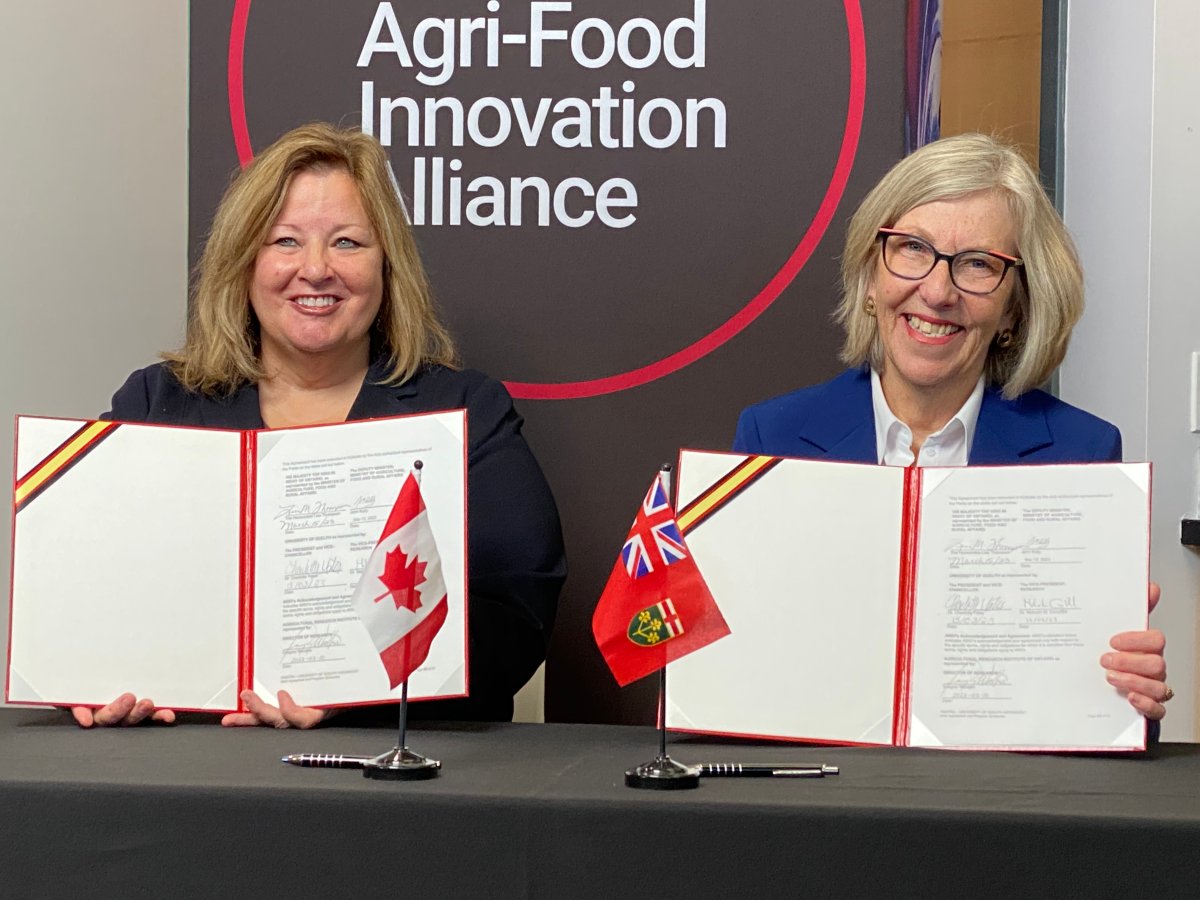The province is renewing its commitment to a program that was developed by the University of Guelph.

The Ontario Agri-Food Innovation Alliance is receiving $343 million to be spread out over the next five years starting April 1 that will be put toward research focusing on food safety and animal welfare, and support the development of a highly-skilled workforce that will lead to economic growth opportunities in the agri-food sector.
Minister of Agriculture, Food, and Rural Affairs Lisa Thompson, along with members of the alliance, was at the Ontario Dairy Research Centre outside Elora on Wednesday for the announcement.
The alliance is a partnership between the University of Guelph, the Agricultural Research Institute of Ontario and the Ontario Ministry of Agriculture, Food, and Rural Affairs (OMAFRA).
University president Charlotte Yates says this renewed commitment by the province is an example of how well the university is doing in regards to food research and technology.
“It gives us a platform from which then to leverage other resources so we are able to amplify the impact of this investment through the work that our researchers do, and the funding they receive from other resources,” Yates said.
Thompson adds it is important for the province to continue their relationship with the university on agricultural matters.
“The University of Guelph is one of the best institutions to partner,” said Thompson. “Not only is the university reaching out to other institutions, but the agricultural industry as well. We are bridging the opportunities to work with colleges and universities.”

Get breaking National news
The university’s vice president of research, Dr. Malcolm Campbell, calls this “a landmark” agreement that will create and apply groundbreaking, globally-relevant innovation to address the challenges and opportunities in the agri-food sector and rural communities.
According to a news release, the alliance has increased Ontario’s gross domestic product by $1.4 billion and supported more than 1,300 jobs.
“When you get disruptions in the supply chain, people start to look at Ontario for solutions whether it be for technology solutions, or to be the source for exports,” said Yates.
“We need to keep ahead and with what’s happening in the area of food, agriculture and trade, and make sure the work that the university does supports those emerging areas as well.”








Comments